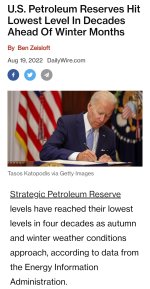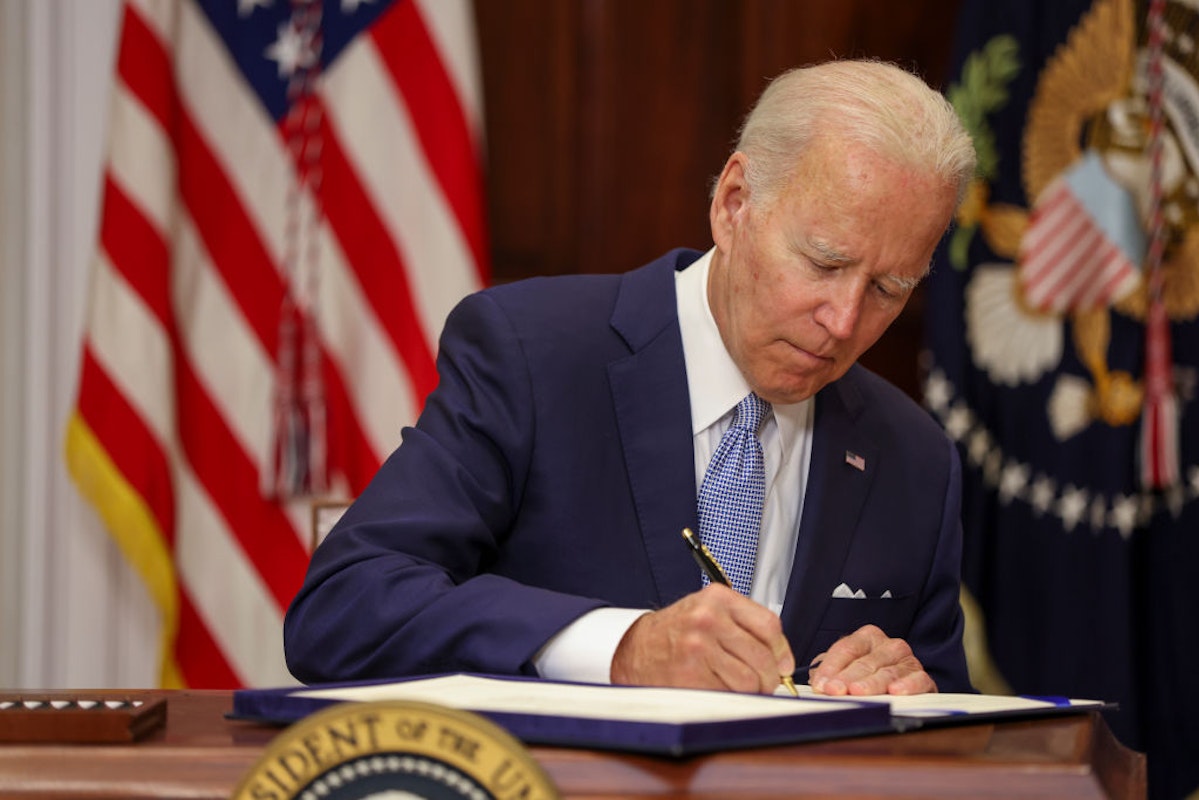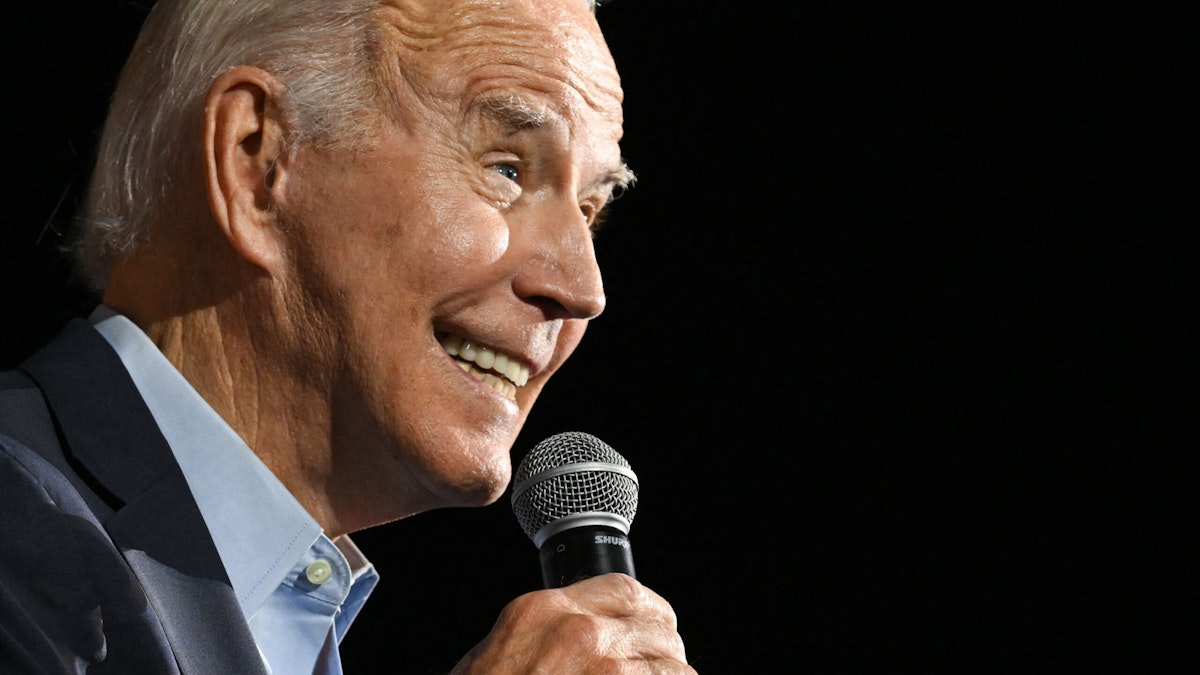If America cannot produce its own cheaper oil and gas because of Biden and prices of gas triple at the pump, then Biden needs to be tried for treason.JP Morgan warns that oil prices could surge to $380 a barrel
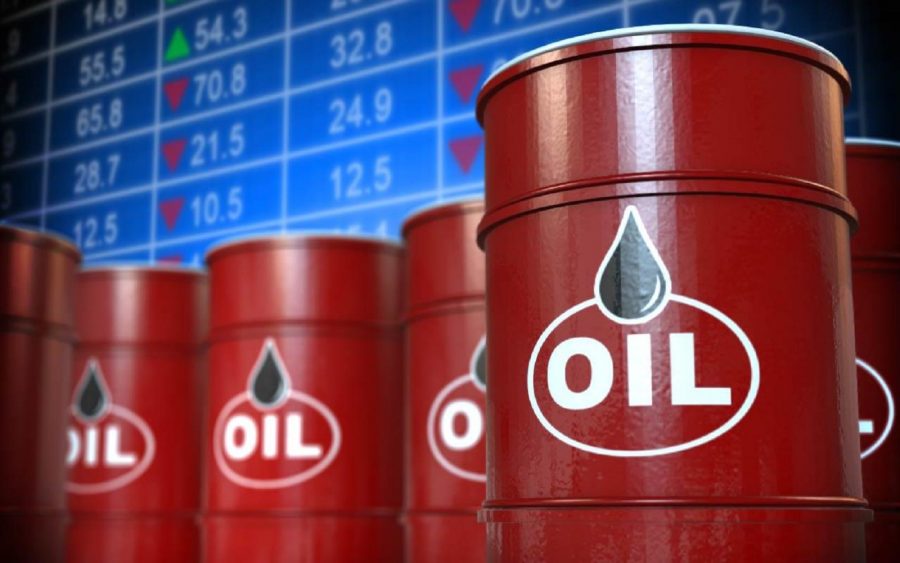
JP Morgan warns that oil prices could surge to $380 a barrel
The price of oil may rise to a "stratospheric" $380 per barrel if US and European sanctions lead Russia tonairametrics.com
I've been telling you that Joe Biden and the extreme left want to destroy civilization as we know it. This ought to do it.
You are using an out of date browser. It may not display this or other websites correctly.
You should upgrade or use an alternative browser.
You should upgrade or use an alternative browser.
Land, Food, Water, Energy
- Thread starter ok doser
- Start date
ok doser
lifeguard at the cement pond
File this one under either "grounds for impeachment" or "I hope the big guy got his 10% cut"
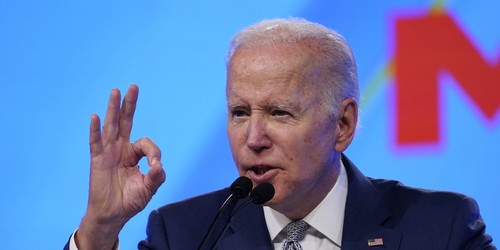
Source: (AP Photo/Susan Walsh)
As a result of his domestic war on the oil and gas industry, energy prices for American families continue to hit records with no relief in sight.
For months, President Joe Biden has repeatedly tapped the Strategic Petroleum Reserve and claimed it was helping to ease the pain at the pump. Not only has the depletion of the emergency supply not decreased gas prices, we're learning the supply is being sold to foreign countries.
"More than 5 million barrels of oil that were part of a historic U.S. emergency oil reserves release aimed at lowering domestic fuel prices were exported to Europe and Asia last month, according to data and sources, even as U.S. gasoline and diesel prices touched record highs," Reuters reports. "The export of crude and fuel is blunting the impact of the moves by U.S. President Joe Biden designed to lower record pump prices."
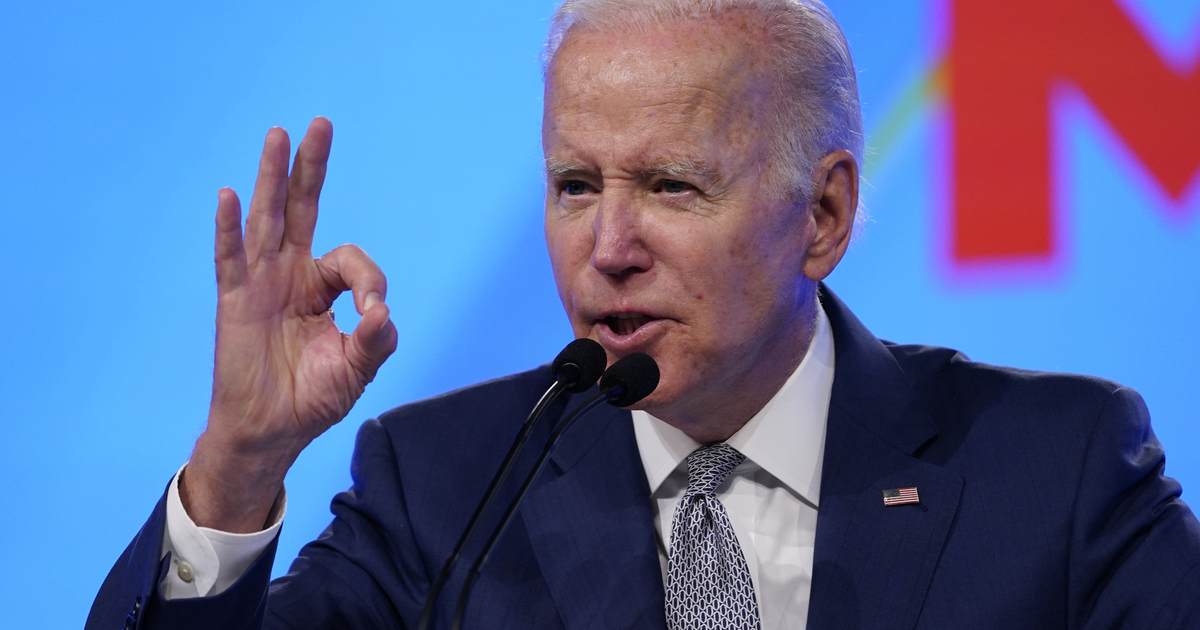
 townhall.com
townhall.com
Biden is Selling America's Reserve Oil to Foreign Countries
Katie Pavlich | Jul 05, 2022 4:30 PM
Source: (AP Photo/Susan Walsh)
As a result of his domestic war on the oil and gas industry, energy prices for American families continue to hit records with no relief in sight.
For months, President Joe Biden has repeatedly tapped the Strategic Petroleum Reserve and claimed it was helping to ease the pain at the pump. Not only has the depletion of the emergency supply not decreased gas prices, we're learning the supply is being sold to foreign countries.
"More than 5 million barrels of oil that were part of a historic U.S. emergency oil reserves release aimed at lowering domestic fuel prices were exported to Europe and Asia last month, according to data and sources, even as U.S. gasoline and diesel prices touched record highs," Reuters reports. "The export of crude and fuel is blunting the impact of the moves by U.S. President Joe Biden designed to lower record pump prices."

Biden is Selling America's Reserve Oil to Foreign Countries
As a result of his domestic war on the oil and gas industry, energy prices for American families con
ok doser
lifeguard at the cement pond
Another story that must be inextricably linked to Joe Biden and the Democrats leading up to November 7th
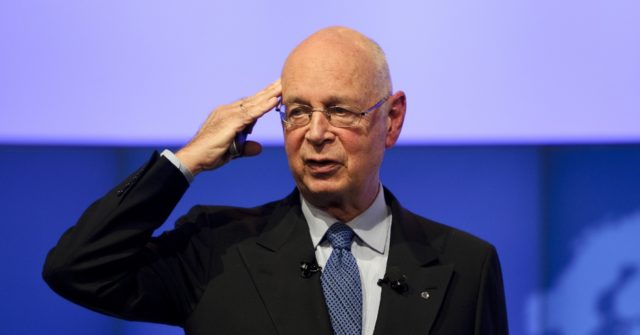
 www.breitbart.com
www.breitbart.com
World Economic Forum: Gas Prices Must Go Even Higher — to Save Democracy

World Economic Forum: Gas Prices Must Go Even Higher -- to Save Democracy
The World Economic Forum released a position paper arguing democracy can only be saved if consumers ditch their reliance on fossil fuels.
ok doser
lifeguard at the cement pond

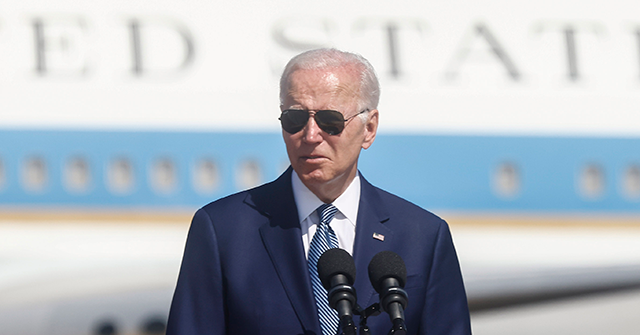
API: Biden Rejects Visits to Domestic Operations, Begs Saudi for Oil
API said Biden nixed invites from U.S. oil and gas leaders to visit domestic sites, instead visiting Saudi Arabia to get more fossil fuels.
ok doser
lifeguard at the cement pond
Silly Europeans

The European Union is considering rationing gas across the bloc in the hopes of fighting shortages this winter, with the public being told to expect a tripling of prices.
As supplies go down and prices go way up, the European Union is now seemingly fearing a breaking point may be soon upon its member states, with the Commission now reportedly penning an emergency rationing plan for if Russia decides to cut countries off from its energy exports entirely.

 www.breitbart.com
www.breitbart.com

The European Union is considering rationing gas across the bloc in the hopes of fighting shortages this winter, with the public being told to expect a tripling of prices.
As supplies go down and prices go way up, the European Union is now seemingly fearing a breaking point may be soon upon its member states, with the Commission now reportedly penning an emergency rationing plan for if Russia decides to cut countries off from its energy exports entirely.

EU Mulls Bloc-Wide Gas Rationing as Public Told to Expect Prices to Triple
The European Union is considering rationing gas across the bloc in the hopes of fighting shortages this winter,
"The Biden Administration has vowed to boost supplies of the super-chilled fuel to Europe after the bloc decided to move away from Russian gas in response to the country’s invasion of Ukraine in February. Even before that, the region had already been struggling with a supply crunch that sent European gas prices skyrocketing to unprecedented levels. The prospect of higher profits encouraged American suppliers with contract flexibility to deliver more fuel to Europe at the expense of other destinations."
ok doser
lifeguard at the cement pond
No word yet on how many millions will go to Hunter's business partner's in China, but we're hoping the big guy gets his 10% cut
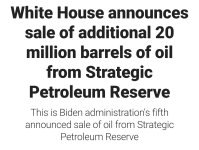
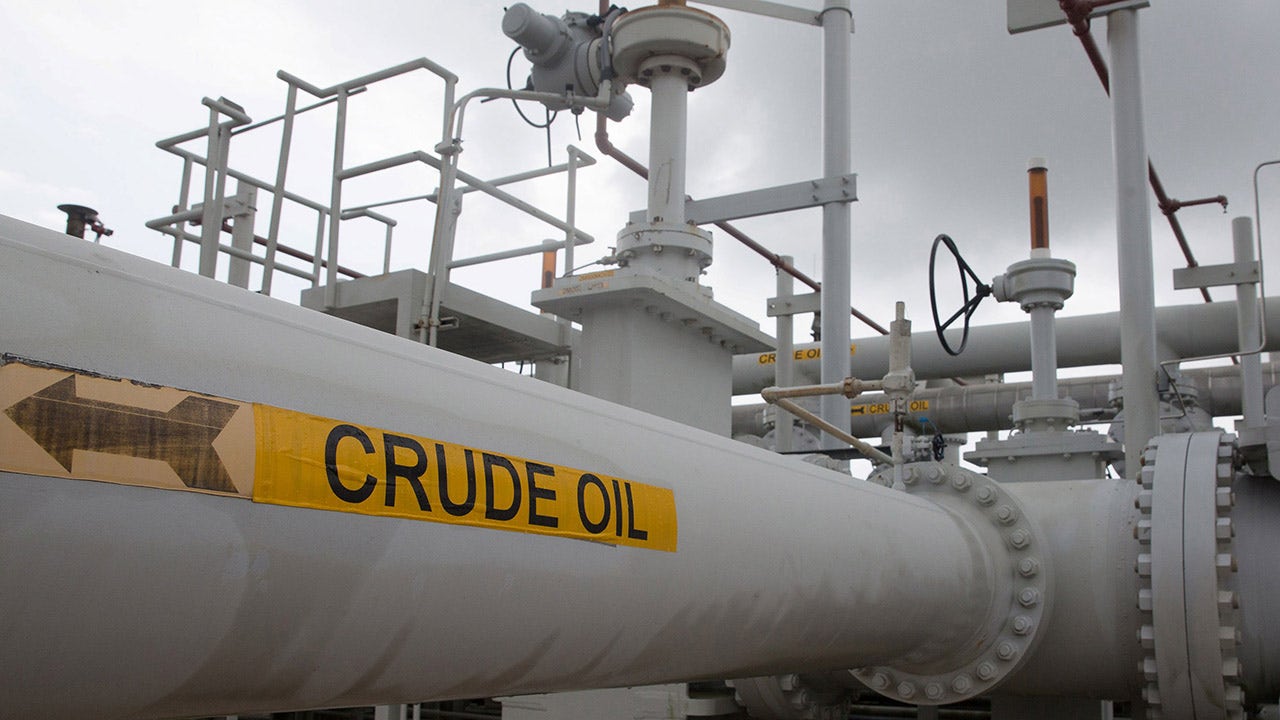
 www.foxbusiness.com
www.foxbusiness.com


White House announces sale of additional 20 million barrels of oil from Strategic Petroleum Reserve
The Department of Energy is issuing a notice to sell 20 million additional barrels of oil from the Strategic Petroleum Reserve, as part of an effort to lower gas prices.
ok doser
lifeguard at the cement pond
File this one under "Well, Duh"
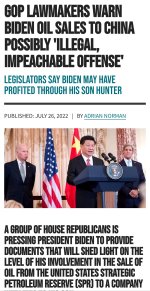

 timcast.com
timcast.com


GOP Lawmakers Warn Biden Oil Sales to China Possibly ‘Illegal, Impeachable Offense’ | TIMCAST
A group of House Republicans is pressing President Biden to provide documents that will shed light on the level of his involvement in the sale...
ok doser
lifeguard at the cement pond
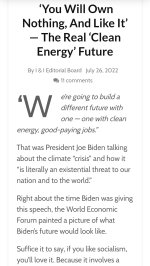

‘You Will Own Nothing, And Like It’ — The Real ‘Clean Energy’ Future
If raping the earth and ravaging the seas to get the minerals needed for ‘clean energy’ are off the table, what’s left?
 issuesinsights.com
issuesinsights.com
ok doser
lifeguard at the cement pond
ok doser
lifeguard at the cement pond
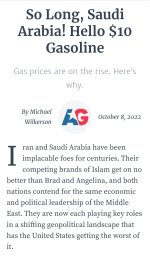
Iran and Saudi Arabia have been implacable foes for centuries. Their competing brands of Islam get on no better than Brad and Angelina, and both nations contend for the same economic and political leadership of the Middle East. They are now each playing key roles in a shifting geopolitical landscape that has the United States getting the worst of it.
The United States and Iran became close allies in the decades following World War II. The Shah of Iran was a regular guest of the White House across multiple administrations, and the United States supplied the regime with the most advanced American military equipment and training in exchange for its oil. This cozy relationship began to deteriorate in the 1970s. It was finally ruptured by the cleric-led Islamic Revolution, punctuated by the deposing of the Shah and by the taking hostage of hundreds of American citizens by radicalized students in 1979. Iran would thereafter become the mortal enemy of the United States and of its most-loathed friend in the region, Israel.
For the next 40 years, Saudi Arabia served as the United States’ most important ally amongst the oil-producing countries of the Middle East. Time and time again, the Saudi princes would reluctantly yield to accommodate the will of the United States, even when it was not in their short term interest, or when it cost them with their neighbors. In exchange for selling oil at reasonable prices, they received U.S. military and technical support, while the U.S. government turned a blind eye to the regime’s oppressive treatment of the women, minorities, and infidel Christians in its midst.
The Saudis treated President Trump with a respect borne of fear. These same princes treat Joe Biden with a disrespect borne of contempt. By disregarding the pleadings of the Biden Administration to maintain output, the Saudis have signaled that they are shifting their alliance. In short, they esteem China as a more valuable relationship than the United States and are switching teams faster than LeBron James.
Nonetheless, the United States, while simultaneously begging bankrupt and decrepit Venezuela for help, will still have to buy oil from the Saudis for the foreseeable future. And the Saudis will happily sell it—but on their terms. In less than two years, the United States has gone from being a price setter to a cap-in-hand price taker. We have absolutely no leverage, and OPEC knows it. The United States has reverted from net exporting its vast reserves of fossil fuels to net importing, while recklessly draining its strategic petroleum reserves, leaving the country vulnerable in a real crisis.
The consequences of the shifting geopolitical landscape and the dismantling of America’s domestic energy production will be severe. We will see the growing effects of it within the next two months—i.e., as winter approaches and supplies dwindle—reflected in rising energy prices across the board.
Many consumers and economic observers were pleased to see gas prices start to go back down during the summer. Economists saw in it what they wanted to see and believed what they wanted to believe, which was that inflation was coming to an end and energy markets were normalizing. They were wrong. Now prices are rising again. They are not going back down anytime soon. It’s going to get worse. Here’s why:
Global supply remains tight compared with demand. OPEC+ has just agreed to reduce output by two million barrels after a smaller tightening last month. Europe’s natural gas crisis, a different product and supply chain, is nonetheless producing substitution effects and impacting oil and other markets. The sabotage of Russian-German energy infrastructure invites tit-for-tat responses from Russia and her allies against U.S. infrastructure. And, last but not least, short-sighted energy policy is slowly but surely translating into higher structural prices, meaning they’re likely here to stay.
As the saying goes, you cannot have your cake and eat it too. The United States cannot constrain its own production transport, sanction and then sabotage Russia’s, sell its petroleum reserves to private commodity traders (who then ship those barrels to Europe, India, and China), and fail to read (or at least understand) the significance of its own data about the supply-demand imbalances in an essentially global market, and not expect severe consequences.
The Biden Administration’s attempts to blame, bully, excoriate, over-regulate, and punish both U.S. major producers and hapless small fuel retailers alike are the equivalent of beating the proverbial dead horse. Government plans to implement price controls disconnected from market realities won’t work and will create worse problems (shortages) than they seek to solve (price inflation). That we’re having to relearn these painful lessons of history through the blind repetition of experience is extremely frustrating.

So Long, Saudi Arabia! Hello $10 Gasoline › American Greatness
Iran and Saudi Arabia have been implacable foes for centuries. Their competing brands of Islam get on no better than Brad and Angelina, and both nations contend for the same economic and political…
This is not the really bad point...Expensive gas is the least of our worries. The really bad point is that if the above is true it is likely the end of the Petro-Dollar...Which will drag down the T-Bill...Guess what comes next.View attachment 4422
Iran and Saudi Arabia have been implacable foes for centuries. Their competing brands of Islam get on no better than Brad and Angelina, and both nations contend for the same economic and political leadership of the Middle East. They are now each playing key roles in a shifting geopolitical landscape that has the United States getting the worst of it.
The United States and Iran became close allies in the decades following World War II. The Shah of Iran was a regular guest of the White House across multiple administrations, and the United States supplied the regime with the most advanced American military equipment and training in exchange for its oil. This cozy relationship began to deteriorate in the 1970s. It was finally ruptured by the cleric-led Islamic Revolution, punctuated by the deposing of the Shah and by the taking hostage of hundreds of American citizens by radicalized students in 1979. Iran would thereafter become the mortal enemy of the United States and of its most-loathed friend in the region, Israel.
For the next 40 years, Saudi Arabia served as the United States’ most important ally amongst the oil-producing countries of the Middle East. Time and time again, the Saudi princes would reluctantly yield to accommodate the will of the United States, even when it was not in their short term interest, or when it cost them with their neighbors. In exchange for selling oil at reasonable prices, they received U.S. military and technical support, while the U.S. government turned a blind eye to the regime’s oppressive treatment of the women, minorities, and infidel Christians in its midst.
The Saudis treated President Trump with a respect borne of fear. These same princes treat Joe Biden with a disrespect borne of contempt. By disregarding the pleadings of the Biden Administration to maintain output, the Saudis have signaled that they are shifting their alliance. In short, they esteem China as a more valuable relationship than the United States and are switching teams faster than LeBron James.
Nonetheless, the United States, while simultaneously begging bankrupt and decrepit Venezuela for help, will still have to buy oil from the Saudis for the foreseeable future. And the Saudis will happily sell it—but on their terms. In less than two years, the United States has gone from being a price setter to a cap-in-hand price taker. We have absolutely no leverage, and OPEC knows it. The United States has reverted from net exporting its vast reserves of fossil fuels to net importing, while recklessly draining its strategic petroleum reserves, leaving the country vulnerable in a real crisis.
The consequences of the shifting geopolitical landscape and the dismantling of America’s domestic energy production will be severe. We will see the growing effects of it within the next two months—i.e., as winter approaches and supplies dwindle—reflected in rising energy prices across the board.
Many consumers and economic observers were pleased to see gas prices start to go back down during the summer. Economists saw in it what they wanted to see and believed what they wanted to believe, which was that inflation was coming to an end and energy markets were normalizing. They were wrong. Now prices are rising again. They are not going back down anytime soon. It’s going to get worse. Here’s why:
Global supply remains tight compared with demand. OPEC+ has just agreed to reduce output by two million barrels after a smaller tightening last month. Europe’s natural gas crisis, a different product and supply chain, is nonetheless producing substitution effects and impacting oil and other markets. The sabotage of Russian-German energy infrastructure invites tit-for-tat responses from Russia and her allies against U.S. infrastructure. And, last but not least, short-sighted energy policy is slowly but surely translating into higher structural prices, meaning they’re likely here to stay.
As the saying goes, you cannot have your cake and eat it too. The United States cannot constrain its own production transport, sanction and then sabotage Russia’s, sell its petroleum reserves to private commodity traders (who then ship those barrels to Europe, India, and China), and fail to read (or at least understand) the significance of its own data about the supply-demand imbalances in an essentially global market, and not expect severe consequences.
The Biden Administration’s attempts to blame, bully, excoriate, over-regulate, and punish both U.S. major producers and hapless small fuel retailers alike are the equivalent of beating the proverbial dead horse. Government plans to implement price controls disconnected from market realities won’t work and will create worse problems (shortages) than they seek to solve (price inflation). That we’re having to relearn these painful lessons of history through the blind repetition of experience is extremely frustrating.

So Long, Saudi Arabia! Hello $10 Gasoline › American Greatness
Iran and Saudi Arabia have been implacable foes for centuries. Their competing brands of Islam get on no better than Brad and Angelina, and both nations contend for the same economic and political…amgreatness.com
Yeah...We are not in good shape right now. I wonder how many in the United States are aware of it?
Last edited:
ok doser
lifeguard at the cement pond
ok doser
lifeguard at the cement pond
Hochul bans natural gas hookups in new construction

 www.foxnews.com
www.foxnews.com

New York moves to become first state banning natural gas hookups
New York Gov. Kathy Hochul announced Thursday that her state would move to ban natural gas hookups in new buildings as soon as 2025, the first such statewide action nationwide.

